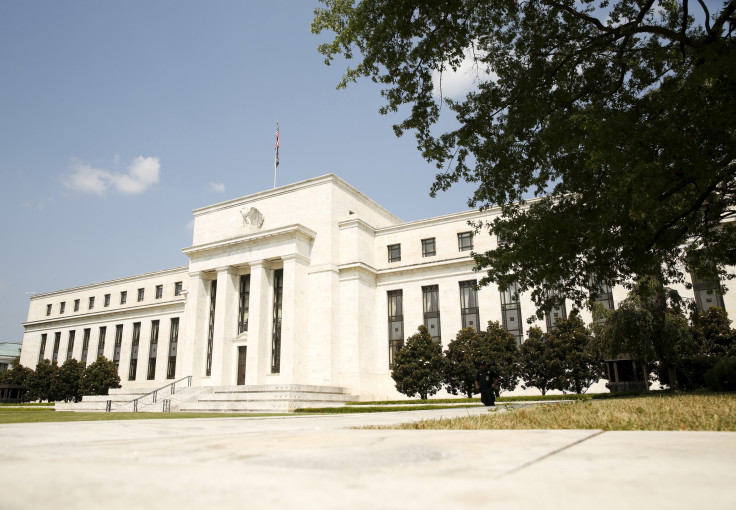Interest Rates: What Will The Fed Do This Week?

Investors don’t have much longer to wait to find out whether the U.S. Federal Reserve will raise interest rates this month.
The Federal Open Markets Committee meets Tuesday and Wednesday to determine whether the federal funds rate, currently at 0.5 percent, will be jacked up by 25 basis points or whether the long-awaited hike will be put off — again. The debate coincides with a similar discussion in Japan.
Fed governors had been hoping for clear signals from the economy that it is OK to raise rates. But in August, payroll gains again slowed and there was a sharp pullback in the service sector. But the annual inflation rate hit 2.3 percent — 0.3 percentage point more than the Fed goal — helping to make the case for an increase.
USA Today reported the consensus among economists and futures markets is no rate hike is in the immediate future. More likely, the Fed will hold off until December, a full year after its last increase. Wall Street analysts put the likelihood of a rate hike this week at 12 percent.
Rick Rieder, BlackRock chief investment officer for global fixed income, told Money Control he thinks the Fed will hold off.
“I don’t think they’re going to go, particularly given the recent data that’s been softer. I think they’re going to wait until December,” he said.
Japan, however, is another story. Observers say the Bank of Japan could go further into negative territory, ending its purchase of longer-duration securities.
Small business expert and Guidant Financial CEO David Nilssen said in an email a rate hike likely would ease the credit crunch and spur lending activity.
“As rates rise, banks may part with their money more freely. Adding credit would boost economic growth which has been below forecasts recently,” he said, adding an interest rate increase might push more people into the housing market as potential buyers try to beat future hikes and would be better for retirees currently locked into low-interest-bearing accounts.
The uncertainty over interest rates has sent the stock market ricocheting, with the Dow closing down Friday by nearly a half percentage point to 18,123.80 as investors worried about what the Fed will do. The Standard & Poor’s 500 was off 0.38 percent to 2,139.16 and the Nasdaq was off 0.1 percent to 5,244.57.
In its latest quarterly bulletin, the Bank for International Settlements said financial markets are too dependent on central banks.
“Developments in the period under review have highlighted once more just how dependent on central banks markets have become,” said Claudio Borio, who heads BIS’s monetary and economic department. “It is becoming increasingly evident that central banks have been overburdened for far too long.”
Borio also points to slow global growth “into the distant future.”
Raising rates is not as easy as it used to be for the Fed. Before the Great Recession, it accomplished rate regulation through adjustment of the size of reserves in the banking system. This time around, however, the Fed may be reluctant to sell its own security holdings.
The Fed currently has $4 trillion in reserves compared with $800 billion before the recession. Since the financial crisis, the Fed has been paying interest on bank reserves. Morningstar said the Fed likely will continue to control the fed funds rate through the interest paid on the reserves.
© Copyright IBTimes 2024. All rights reserved.





















